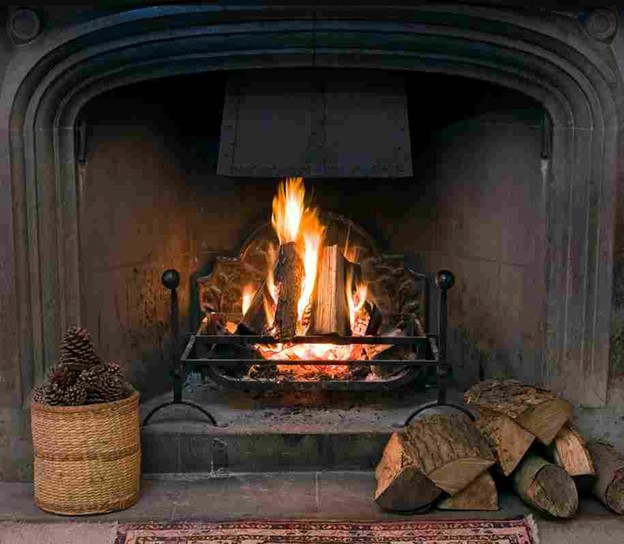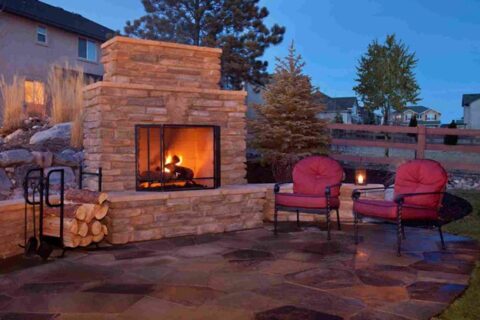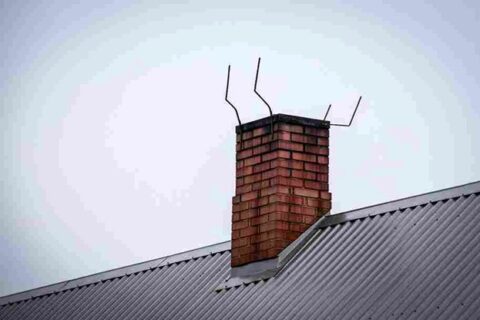10 Tips to Prevent Chimney Fires
Preventing Chimney Fires
Chimney fires are a major hazard that can lead to extensive damage to homes and pose serious safety risks. Fortunately, these fires are largely preventable with proper maintenance and care. This article provides ten essential tips on how to avoid chimney fires, emphasizing the best practices and chimney safety tips. By implementing these measures, homeowners can significantly reduce the risk of chimney fires.

- Schedule Annual Chimney Inspections: To effectively prevent chimney fires, it is crucial that your chimney is inspected and cleaned annually by a qualified professional. These inspections can uncover hidden problems such as creosote buildup, structural issues, and obstructions that could lead to a chimney fire. Regular inspections make certain that your chimney is in proper working condition and safe to use throughout the burning season.
- Clean the Chimney Regularly: Creosote, which is a highly flammable byproduct of burning wood, accumulates in chimneys and can ignite, causing a chimney fire. Cleaning your chimney regularly, ideally at least once a year, removes creosote and other debris. For heavy fireplace or wood stove users, cleaning may be required more frequently.
- Use the Right Wood: One of the easiest ways to prevent chimney fires is to burn only dry, seasoned wood. Freshly cut wood contains a large amount of moisture and burns at a lower temperature, leading to increased smoke and creosote buildup. Ensure your wood has been dried for at least six months and is stored in a dry place.
- Install a Chimney Cap: A chimney cap can prevent external debris such as leaves, animal nests, and rain from entering the chimney. These obstructions can restrict airflow and lead to creosote buildup, increasing the risk of a chimney fire. A cap also prevents embers from escaping the chimney and ending up on your roof or nearby flammable materials.
- Ensure Proper Installation and Maintenance of Chimney Liners: Chimney liners are crucial for protecting the house structure from heat and preventing the masonry from absorbing the oils produced during combustion. Inspect and maintain your chimney liner regularly to ensure it is not cracked or deteriorated, which could lead to a higher risk of a fire.
- Keep the Hearth Area Clear of Combustibles: To avoid chimney fires and other fire risks, keep furniture, curtains, and other potentially combustible materials at least three feet away from the fireplace. This space acts as a safety zone and reduces the chance of stray sparks or logs rolling out and igniting these materials.
- Monitor and Control the Fire: Always keep a close watch on your fire and never leave it unattended. Use a glass or metal fire screen to catch flying sparks and rolling logs. Keeping the fire under control and monitoring it until it’s completely extinguished can prevent stray sparks from igniting creosote in the chimney.
- Educate Your Family on Fireplace Safety: Chimney safety tips should be known and practiced by everyone in the household. Teach family members the proper way to start, maintain, and extinguish fires. Awareness and education are key factors in preventing chimney fires.
- Use Fireplace Tools Correctly: Employing the right tools for stoking and adding wood to the fire can prevent excessive poking and prodding that might lead to a hotter, more dangerous fire. Tools like pokers, tongs, and shovels can help maintain a safe burning environment.
- Use Creosote Control Products: Consider using commercially available creosote control products as part of your regular maintenance routine. These products can modify creosote, making it less likely to ignite. They are not a substitute for regular chimney cleaning but can be a good supplement.
As a Precaution, Prepare for Emergencies
Despite all precautions, always prepare for the possibility of a chimney fire. Install smoke alarms and carbon monoxide detectors in appropriate areas throughout your home. Have a fire extinguisher readily accessible and ensure everyone in the household knows how to use it. Regularly review fire safety practices and evacuation plans with your family.
Stay Vigilant
By implementing these chimney safety tips and understanding the best ways to prevent chimney fires, homeowners can enjoy the cozy warmth of their fireplaces while ensuring their safety and protecting their property. Regular maintenance, correct fuel choices, and cautious burning practices are your best defenses against chimney fires.
Contact ChimneyTEK for All Your Chimney Service Needs
Don’t let a chimney fire catch you off guard! With over 20 years of experience, ChimneyTEK, Maryland’s trusted chimney and fireplace experts, offers a comprehensive range of services to keep your home safe and warm. From chimney sweeping, inspections, and relining to installing top-quality wood stoves and gas inserts, our skilled team, including CSIA-certified owner Vince DeCrisci, is ready to provide the highest level of chimney care. Serving Baltimore, Glen Burnie, and the surrounding areas, we use only the best brands in the industry. For expert advice and exceptional service, remember ChimneyTEK is just a call away. Stay safe, stay warm, and let us handle your chimney and venting needs! Contact ChimneyTEK online or at 410-684-0127 for premier chimney service.


